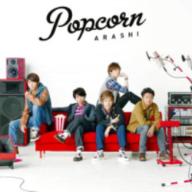我想要由r,y.a.n ←e四個英文字做第一個字既形容人既詞語
唔該大家!!
英文形容詞...唔該!!!
2007-10-08 1:46 am
回答 (7)
2007-10-08 1:57 am
✔ 最佳答案
good better best bad worse worst
little less least
much
many
some
more
most
far further furthest
下表的形容詞類別可以敘述如下:
限定詞 -- 冠詞及其他限定詞。參考限定詞。
評斷 -- 限定詞之後的形容詞 (如 first, three 等序數和基數:the first three new chapters),限制形容詞 (如 a real hero, a perfect idiot) 及主觀判斷的形容詞 (如 beautiful, interesting)。
尺寸與形狀 -- 客觀衡量的形容詞 (如 wealthy, large, round)。
年紀 -- 表示年齡、年代的形容詞 (如 young, old, new, ancient)。
顏色 -- 表示顏色的形容詞 (如 red, black, pale)。
起源 -- 表示名詞之來源的形容詞 (如 French, American, Canadian)。
物質 -- 表示某物是由何者所製成的形容詞 (如 woolen, metallic, wooden)。
修飾語 -- 最後修飾語,通常被視為名詞的一部份 (如 rocking chair, hunting cabin, passenger car, book cover)。
形容詞的順序
限定詞 評斷 物理敘述 起源 物質 修飾語 名詞
尺寸 形狀 年紀 顏色
a beautiful old Italian touring car
an expensive antique silver mirror
four gorgeous long-
stemmed red silk roses
her short black hair
our big old English sheepdog
those square wooden hat boxes
that dilapidated little hunting cabin
several enormous young American baseball players
some delicious Thai food
專有形容詞的大寫
當一個形容詞的起源是個專有名詞時,它可能必須大寫。因此,我們寫成 Christian music, French fries, the English Parliament, the Ming Dynasty, a Faulknerian style, Jeffersonian democracy。若干時期已具有專有形容詞的地位:the Nixon era, a Renaissance/Romantic/Victorian poet (但 a contemporary novelist 和 medieval writer)。方向和季節形容詞不大寫,除非它們是名稱或標題的一部份:
We took the northwest route during the spring thaw. We stayed there until the town's annual Fall Festival of Small Appliances.
請參考大寫以獲得進一步的協助。
集合形容詞
當定冠詞 the 與一個敘述一群人的形容詞結合時,這個片語可做為名詞:the poor, the rich, the oppressed, the homeless, the lonely, the unlettered, the unwashed, the gathered, the dear departed。集合名詞 (通常為單數,但在某些上下文中可為複數) 與集合形容詞之間的差別在於後者永遠是複數,因此需要複數動詞:
The rural poor have been ignored by the media.
The rich of Connecticut are responsible.
The elderly are beginning to demand their rights.
The young at heart are always a joy to be around.
字尾為 -ed 的修飾語後面通常接介系詞,例如:
We were amazed at all the circus animals.
We were amused by the clowns.
We were annoyed by the elephants.
We were bored by the ringmaster.
We were confused by the noise.
We were disappointed by the motorcycle daredevils.
We were disappointed in their performance.
We were embarrassed by my brother.
We were exhausted from all the excitement.
We were excited by the lion-tamer.
We were excited about the high-wire act, too.
We were frightened by the lions.
We were introduced to the ringmaster.
We were interested in the tent.
We were irritated by the heat.
We were opposed to leaving early.
We were satisfied with the circus.
We were shocked at the level of noise under the big tent.
We were surprised by the fans' response.
We were surprised at their indifference.
We were tired of all the lights after a while.
We were worried about the traffic leaving the parking lot.
A-形容詞
最常見的所謂 a-形容詞是 ablaze, afloat, afraid, aghast, alert, alike, alive, alone, aloof, ashamed, asleep, averse, awake, aware
2007-10-08 2:39 am
R = Rebellious (難控制的) bad
= Receptible (能接受的)good
Y= Yare (敏捷的;活潑的) good
= Yucky(討人厭的;噁心的;不愉快的) bad
A = Admirable (值得讚揚的;令人欽佩的) good
= Aimless (沒目標的,無目的的) bad
N= Neighborless (無鄰人的;孤獨的) bad
= Narcissistic (自我陶醉的;自戀的;自我崇拜的) neutral..
= Receptible (能接受的)good
Y= Yare (敏捷的;活潑的) good
= Yucky(討人厭的;噁心的;不愉快的) bad
A = Admirable (值得讚揚的;令人欽佩的) good
= Aimless (沒目標的,無目的的) bad
N= Neighborless (無鄰人的;孤獨的) bad
= Narcissistic (自我陶醉的;自戀的;自我崇拜的) neutral..
2007-10-08 2:04 am
a:active
a:anxious
a:apologetic
a:arrogant
y:young
r:remarkable
n:naughty
n:nervous
a:anxious
a:apologetic
a:arrogant
y:young
r:remarkable
n:naughty
n:nervous
參考: dictionary
2007-10-08 2:01 am
rabid,racist,racy,raffish,rakish
young,youngish,youthful,yucky
abashed,abhorrent,abject,able,abominable
naff,naive,naked,namby-pamby,nameless
young,youngish,youthful,yucky
abashed,abhorrent,abject,able,abominable
naff,naive,naked,namby-pamby,nameless
2007-10-08 1:57 am
你既意思係咪姐係話要將r、y、a、n四個英文字母合併成為一個英文形容詞﹖係的話好似冇喎..........
2007-10-08 1:54 am
R:revere,amazing
Y: young
A:attract
N:nice
Y: young
A:attract
N:nice
2007-10-08 1:51 am
a:active Y:young r:remarkable N:naughty if你要多d既就add我
參考: 我
收錄日期: 2021-04-13 13:48:03
原文連結 [永久失效]:
https://hk.answers.yahoo.com/question/index?qid=20071007000051KK04008





